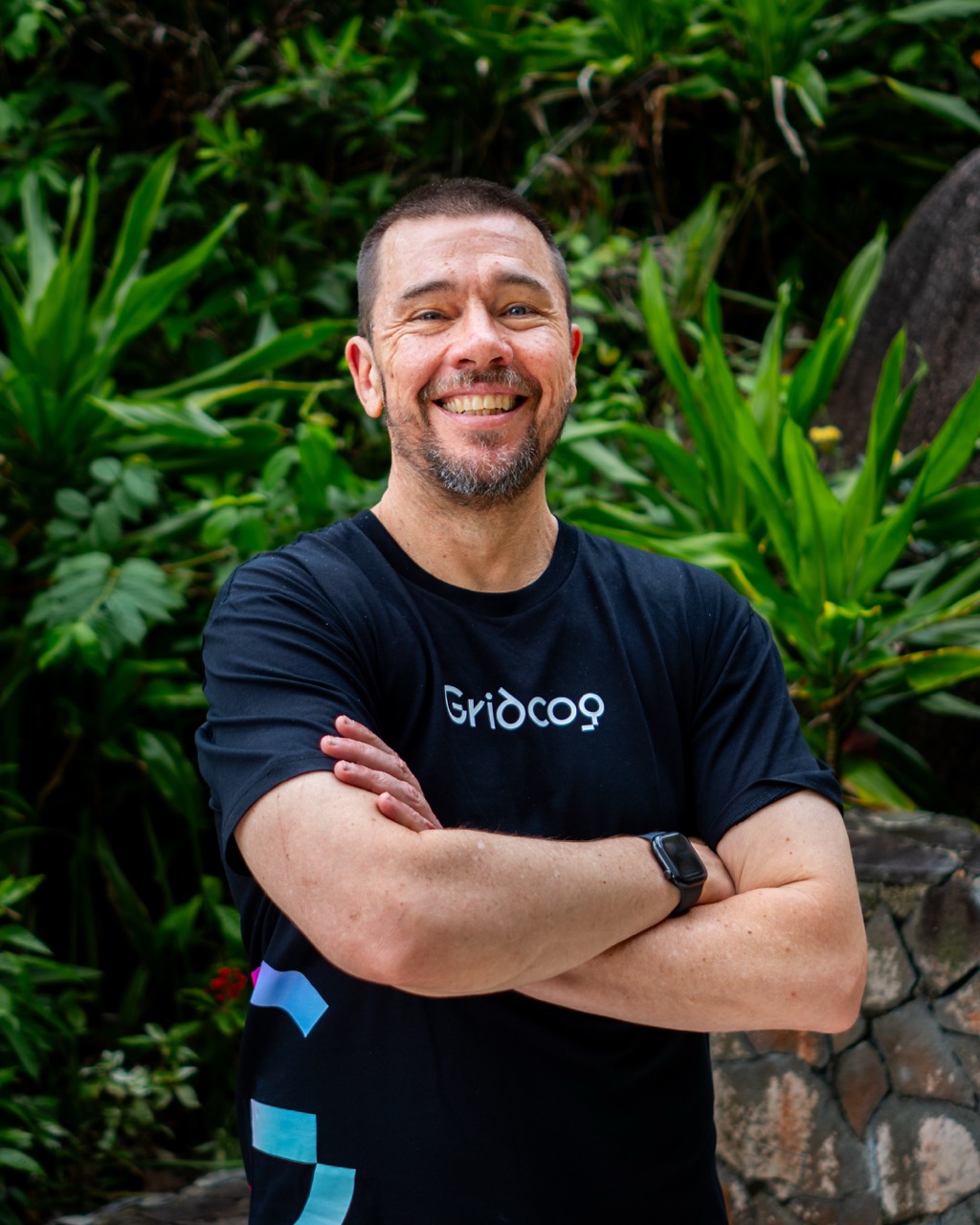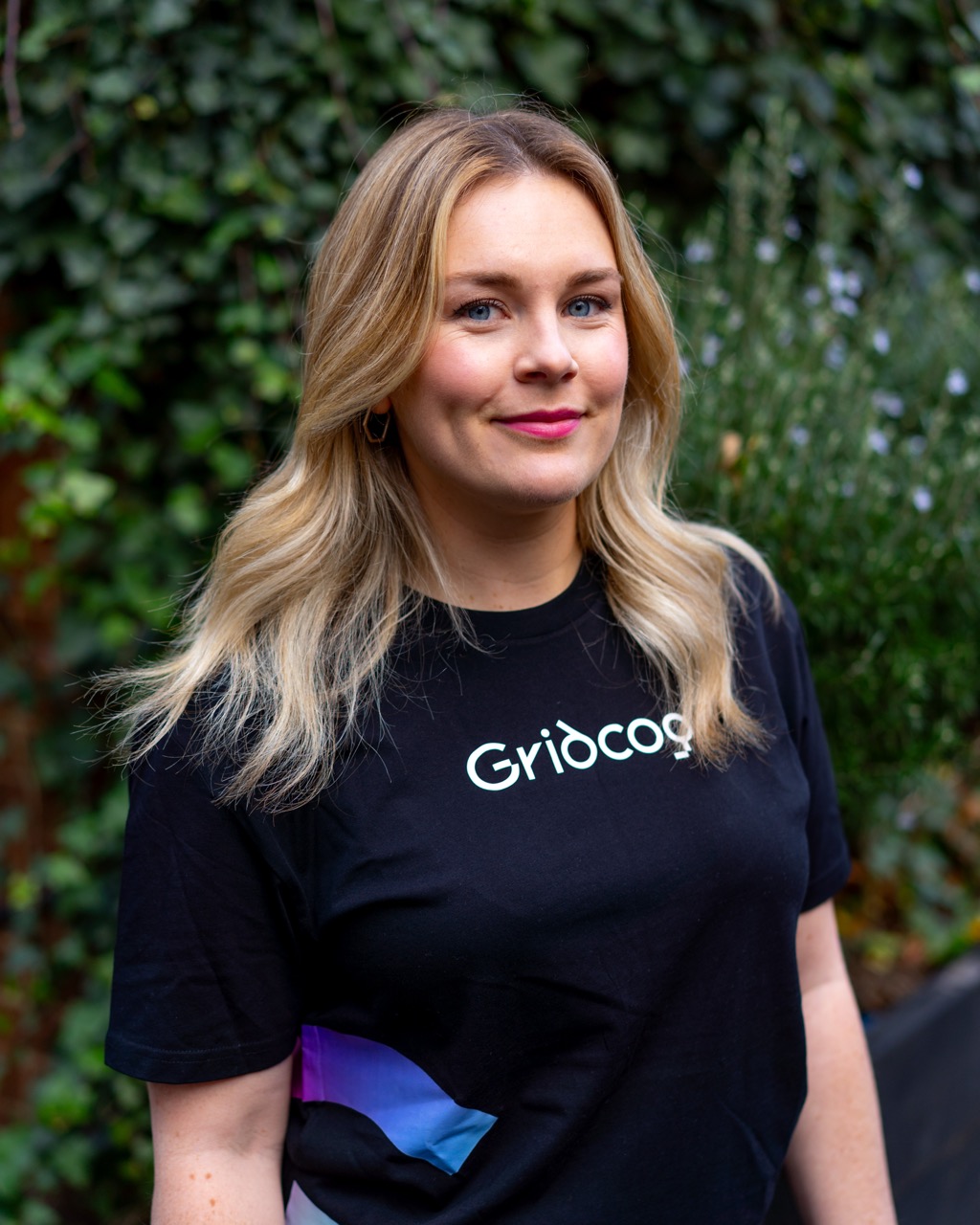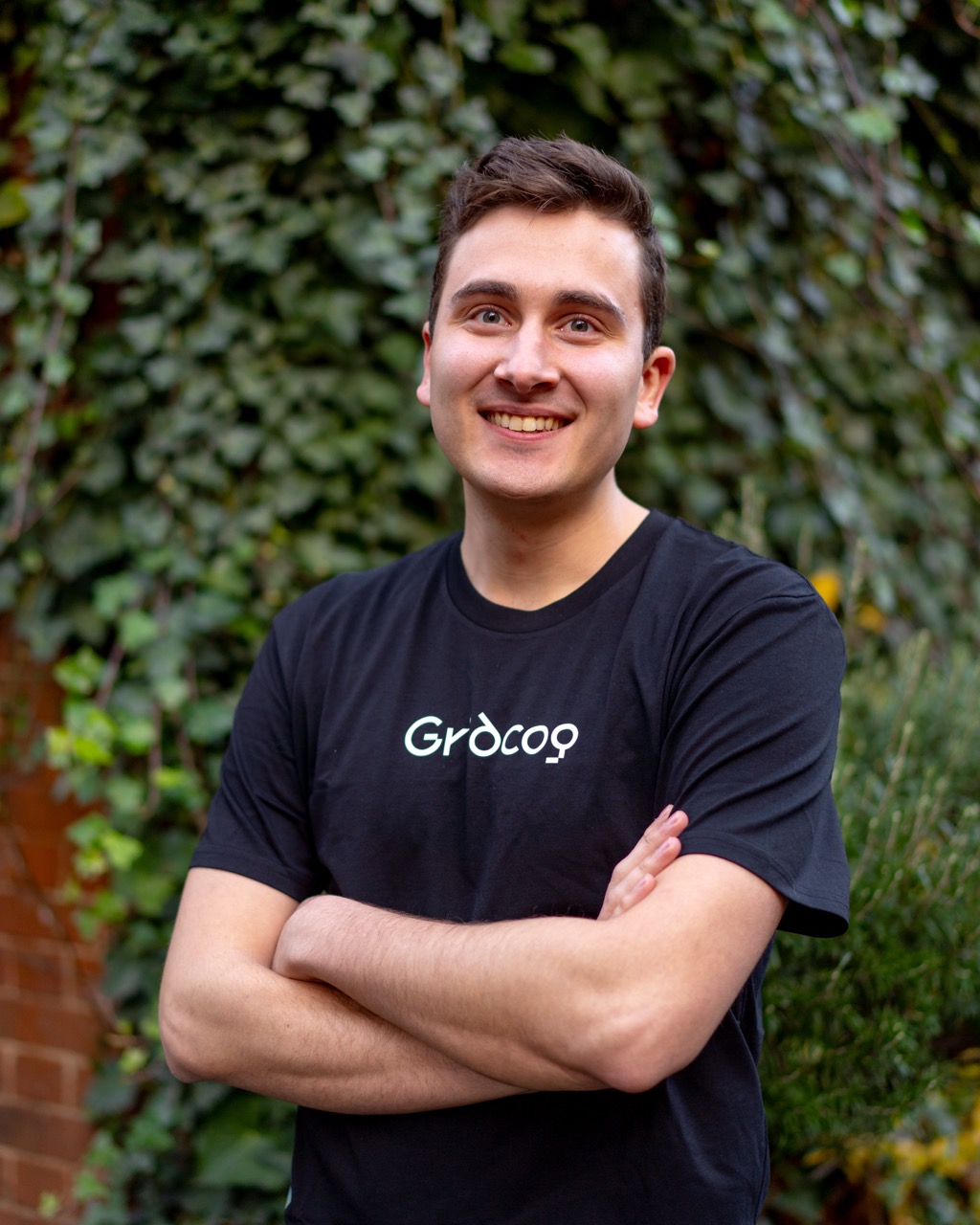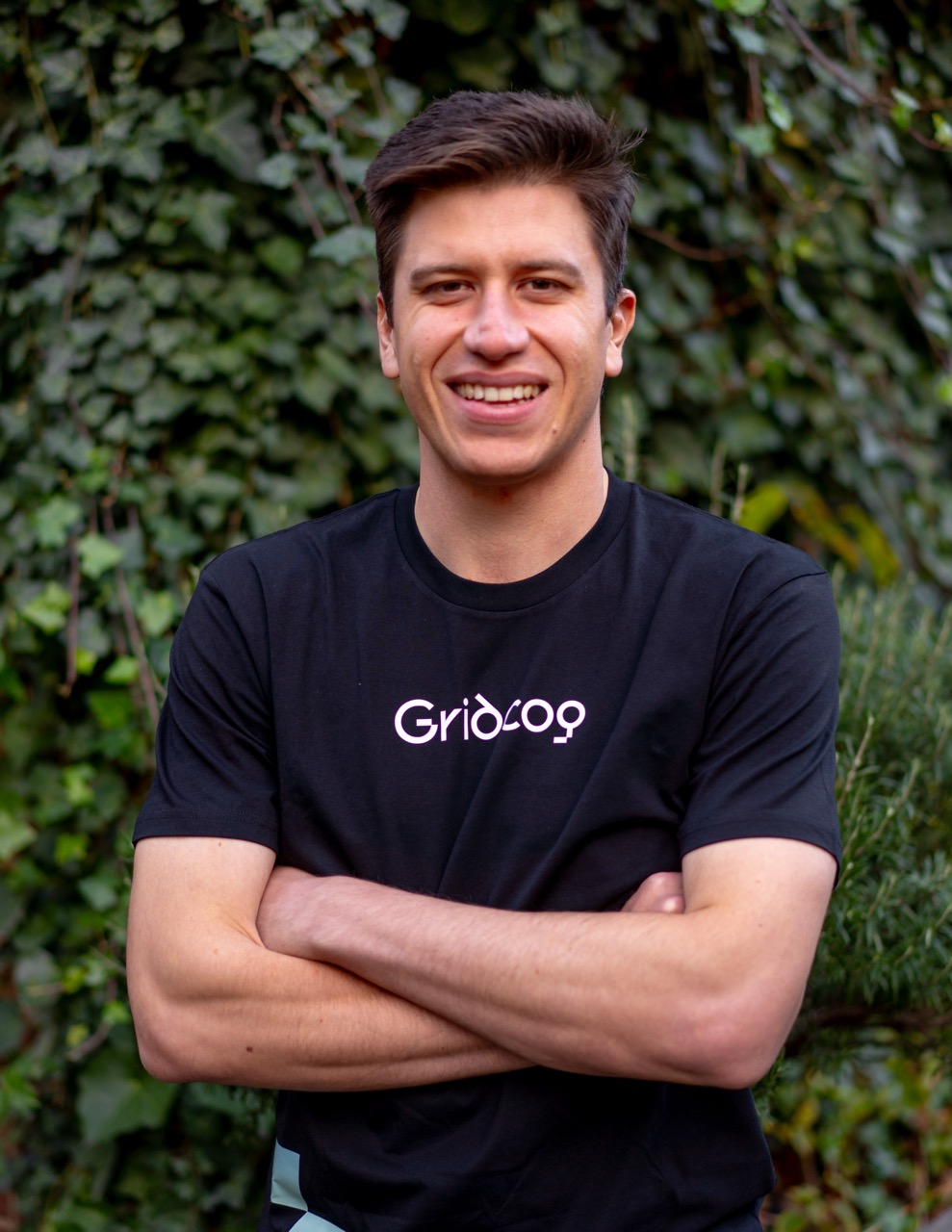Have you met: Alice McCullagh

Alice joined the Gridcognition team in March 2021, and it’s safe to say she hit the ground running! We thought it would be fun to get to know the team a little better, especially now that we’re hiring (hint hint!) and Alice kindly agreed to be my first interview – if you’re keen to join the team, make sure you go to www.gridcognition.com/jobs to check out our open roles!
Alice is a Senior Software Engineer at Gridcogntion. She’s a full stack engineer, specialising in serverless AWS applications with a React frontend and has six years’ experience in software development and consulting, at Deloitte, ThoughtWorks and Telstra Purple.
Let’s dive in!
So, what got you interested in the energy space?
I was one of those people who always had an underlying anxiety about climate change – that nagging feeling in the back of your mind that you’re not doing enough or that your impact on the planet is higher than you’d like. I’d worked in consulting since I finished university, and was wary that I was spending my 40 hours a week not focused on the things that were good for the planet – that the anxiety, and the personal choices to reduce impact weren’t adding up to ‘enough’ to align with my values and what I felt was important. When Fabian reached out to me on LinkedIn about working with Gridcognition, it was out of the blue, but I instantly recognised the opportunity to put some of that nervous energy to good use by making change and having an impact through work.
What’s your favourite feature you have worked on so far?
I think it’s being able to quickly build slick user interfaces – I love that I’m able to tackle existing features and give them a facelift – and I think being able to create really simple visualisations of really complex subject matter. It brings those concepts to life for what might otherwise be pretty tricky for someone to get their head around – like a retail tariff for example – it’s not straightforward, but with a good visual to support it, you help improve learning, give clarity to the dataset and make it meaningful for decision makers.
And what attracted you to work with Gridcognition?
For all its good parts, lots of the ‘startup’ sector is full of enthusiasm, gusto, and without being detracting, a fair amount of pipe dream, I was a little skeptical… What I really liked about Gridcognition, and Fabian, our CEO, is that it’s just deeply practical. There’s a problem that needs solving, so we’re building something to solve it.
We’ve got customers, who are paying us to solve the problem for them, and that’s our business model. We use that money to employ the people who build the product. We fundraise to accelerate the growth, but at its core, the business is already a business.
In our first meeting, we actually bonded over a mutual disdain for the ‘pie in the sky’ stuff and the buzz-word soup that usually dominates conversations about software startups. I was really impressed that by most measures we’re still really early (just over 18 months old) but have customers, have users and we’re helping them to make better decisions.
We’re useful, we make things, we have a net positive impact. We’re not using technology to obfuscate a lack of utility. I also really like the tech stack – good foundation, a lot of which I’ve got experience with, but still lots of opportunities to learn and grow.
What is something awesome about another member of the team?
It’s been really awesome to work with ‘fresh’ minds – there’s a couple of people in our software team who are just out of, or still at uni and I’ve just been blown away by how good it is to work with un-jaded, and talented new grads.
They’re already extremely capable, super smart people, who are just so open to learning – they have that same practicality that I mentioned above – they don’t have all the answers, but they’re always open to putting their hand up to say ‘Has anyone seen this before’, and I’ve really enjoyed being able to (every now and then) say, ‘Yep, I’ve seen that before, here’s how I would tackle that’ and they pick that up and figure it out – I’m sure it took me 18 months to really find my feet when I was a new grad, so big props Eddie and Thai, you guys are rocking it!
I think it’s really valuable to be able to work so close to a customer problem, to really guide – all our dev’s are almost BA’s as well – doing the analysis of the problem, and troubleshooting – it means we’re all getting domain knowledge and building expertise at a really fast rate.
What’s the best (and worst) part of being on a remote team?
Best: Creating your own best work environment, to suit. I have a diffuser, lots of plants, a window right next to my desk that means I don’t feel like one of the codemonkeys trapped in a windowless room that I pictured when I imagined what software engineers did when I was younger!
I like that we have the flexibility to just get our best work done, the way it suits us. It means that if you need to take five to go to the local coffee shop and come back properly focused, that’s 100% ok – I really appreciate that kind of high trust work environment, where you can just work when you’re most productive, instead of the ‘I’m busy working’ theatrics you sometimes see in a standard office environment.
Worst: Working too hard! I think there’s a natural ebb and flow of productivity in an office, where you get distracted, or interrupted, and this is a much more intense style of working – there’s no push and pull, or distractions that give your brain that rest, so you have to build that in to your work day so that it doesn’t become exhausting.
I actually think we’ve got the best of both worlds here in Perth, because there’s a little hub of us based here, we all work from home, but have the collaboration space we can come back to, to come together – to be able to sit down in a room together and troubleshoot something interesting is really really valuable. I try to make sure I build my workday around some kind of ‘real’ interaction each day – whether that’s a meeting in person or zoom call, it just helps ground the work day.
I’m lucky to have a strong network in Perth outside of work too – we all work across different industries and on different problems but its surprising how valuable it is to be able to have that social connection, particularly with people who ‘get’ the type of work we’re doing.
What makes a good tech product?
I think the best products have a close connection to their users, and are solving directly to those needs. Having a tight feedback loop between the development team and customers is really important, and the ability to iterate quickly, and ship new features in fast cycles means you stay tight to the goal. Tech products that have their feedback loop too long often seem to struggle and that saying ‘If your v1 isn’t embarrassing, you waited too long’ I really agree with.
What’s the most important thing when developing a codebase for a product like Gridcognition?
Balancing tech perfection, with getting features out the door – I’ve seen the pendulum swing both ways, and in both cases, its not pretty. An out-sized commitment to quality prevents progress and that perfectionism causes stagnation, and on the other hand, if you’re building crap, the experience for users is crap.
I think it’s mostly about finding that balance. Getting features out the door, where are the blocks, what does 80% look like for this feature, while not letting the tech debt get to high – sometimes done is better than perfect.
It’s ok to not build perfect, as long as that poor(ish) quality is never visible to the user, and doesn’t detract from the experience, it’s better to get it out the door, OR do we need to table it for day and really find the ‘right’ solution before we charge ahead.
It’s a combination of pragmatism and proactivity, making the no-brainer decisions and figuring out if we should buy, burrow or build a particular feature set.
I love that at Gridcognition there’s none of the organisational hierarchy that slows down good decisions – we need X, this is why, let’s get it!
What product/piece of tech could you not live without?
My electric scooter! I use it to get to and from our collab hub (the ‘office’), and when you work from home, the commute is kind of a novelty – I go down this tree-lined pathway which is always dappled with light and it’s just so good to be able to appreciate that kind of thing on the trip to or from work… I live in the CBD, and used to work a 15min walk away – I always knew that if something was still bothering me by the time I got home, it was something that needed acting on – most of the time, by the time I got home, any stress or frustration had melted away.
What did you originally want to be when you grew up?
A scientist. Or a movie director. I always loved computers, but couldn’t see how that married up to the creative part of me, and it wasn’t until I got older I realised that wasn’t a compromise I would have to make!
What’s another cool startup in the energy/tech space that you keep an eye on?
Square! I’m an artist, and I really like that this kind of payments tech is making life easier for people with SME’s – meaning you can take card payments, anywhere – its just really cool!
What do you like to do in your free time?
I have a couple of productive hobbies which I work hard at, and a few which are just a great escape.
I’m into fine arts, do a lot of painting and portraiture, stand up comedy, which I love, and have recently picked up pottery, which I loved mostly because it didn’t come naturally to me at all (and I’m usually pretty decent at this stuff!) – it requires you to be totally present, and took me a long time to get the hang of it and produce something decent – it’s been good to work hard to get better at something like that.
Currently watching MadMen, and playing Zomboid – its a bit like SIMS, but with the added colour of having to avoid having your brain eaten alongside the typical burgeoning society things like starvation and dysentery.







